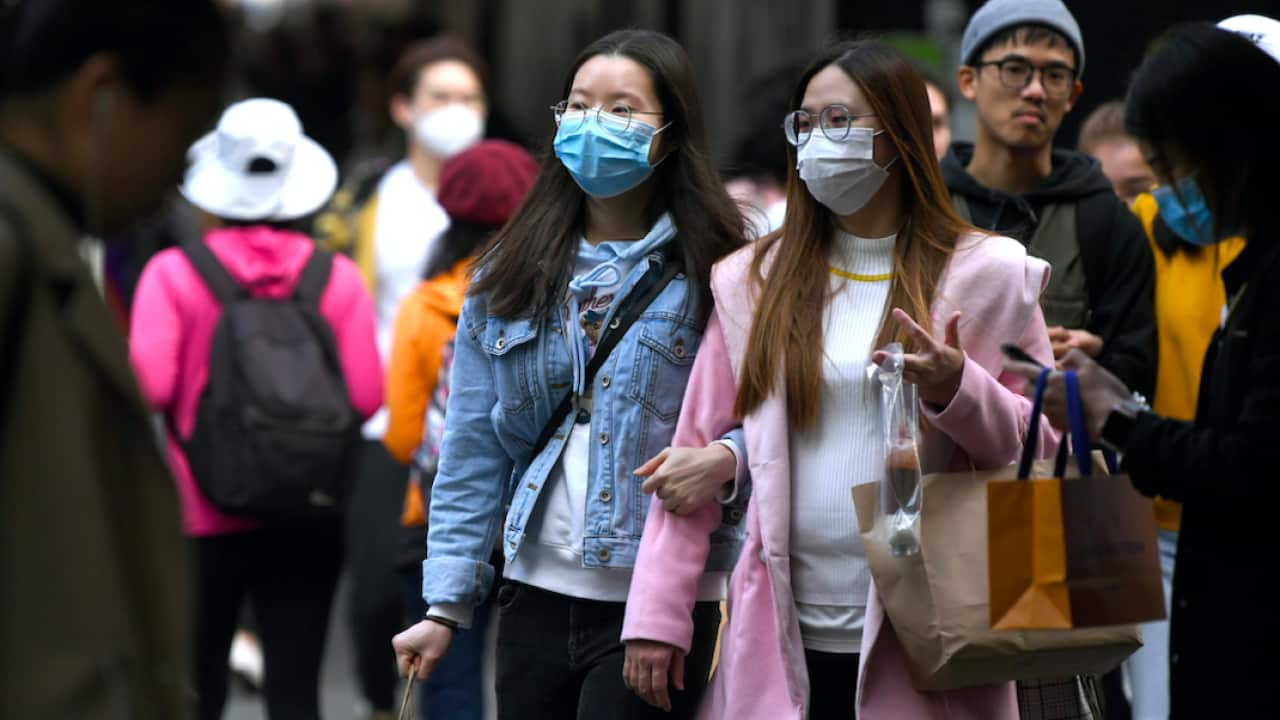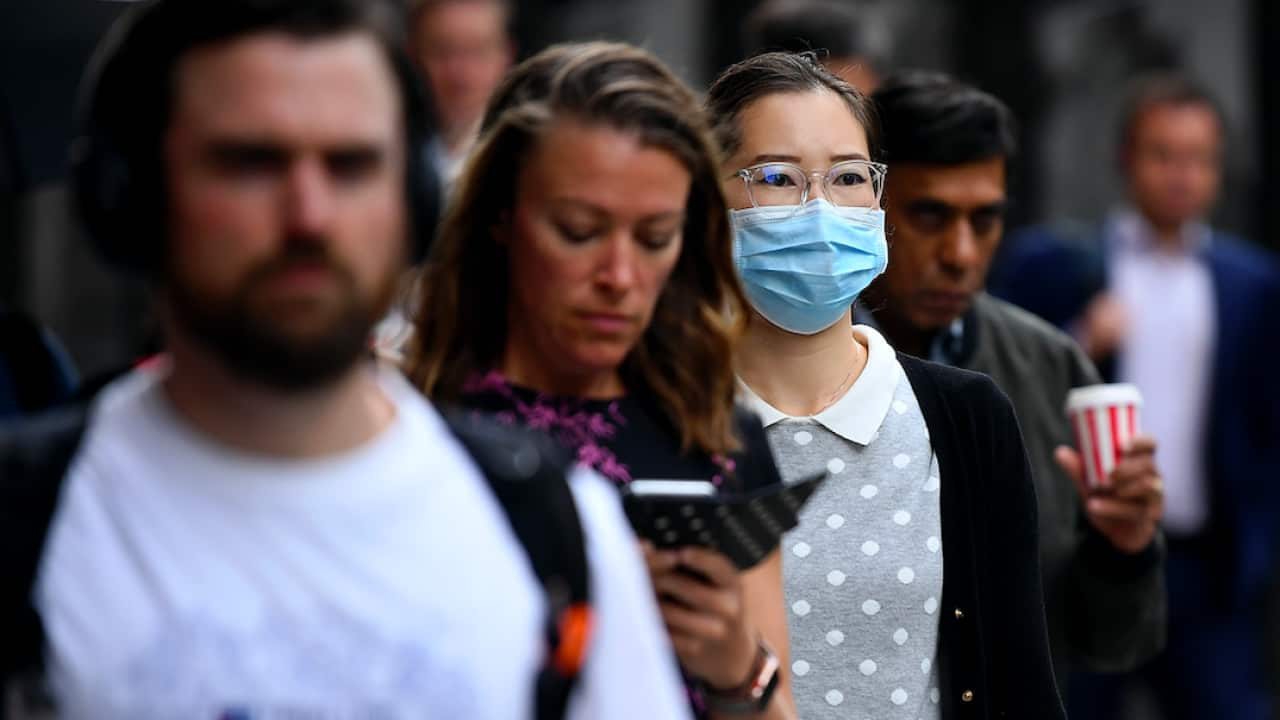With many , victims are being urged to report any kind of racist attack.
But without a national reporting system, processes are often confusing, leaving most incidents unaddressed and uncounted.
SBS News looks at what you can do if you experience racism.
COVID-19 and racism
Since the start of the pandemic, there has been a number of attacks against Asian-Australians, including instances of verbal and online abuse, physical violence and graffiti slurs. The Australian Human Rights Commission - one of the official channels for Australians to report racism to - has recorded a spike in racial discrimination complaints over the pandemic.
The Australian Human Rights Commission - one of the official channels for Australians to report racism to - has recorded a spike in racial discrimination complaints over the pandemic.

A racist slur spray painted on the garage door of a Chinese-Australian family in Melbourne. Source: SBS News
In February, the commission received the highest number of racial discrimination complaints this financial year.
While this dropped to within the usual range during the lockdown months of March and April, around a third of complaints were COVID-19-related.
"Anything new always generates prejudices ... People look for someone to blame," Race Discrimination Commissioner Chin Tan told SBS News. But advocates have expressed concern that there is significant under-reporting of racism in Australia, both before and during the pandemic.
But advocates have expressed concern that there is significant under-reporting of racism in Australia, both before and during the pandemic.

Race Discrimination Commissioner Chin Tan talks to SBS News. Source: SBS News
"There are only around 500 reports made to the Australian Human Rights Commission each year, when clearly a lot more racism is happening than that," Priscilla Brice of advocacy group All Together Now told SBS News.
Ms Brice pointed to the , which found that about one in five Australians experience racism each year.
"So that's not 500 [incidents], that's millions of incidents," she said.
Who should you report it to?
The Australian Human Rights Commission is one of the main ways to report racism in this country.
It's perhaps the most formal of the options.
"If a complaint comes through, it's meant to have the possibility of conciliation and mediation, so if you can't find a culprit and so on, there are limitations," Mr Tan said.
But he said that in the absence of a national reporting system, the commission or its state counterparts such as or should be a victim's "first base".
"When they call us, there are people on the line that are trained, who can support them ... And perhaps when we can't deal with it ourselves we can point them to somewhere else," Mr Tan said.
Victims can also report racism to police, something that the Asian Australian Alliance recommends.
"Even if [victims] make a police report and it doesn't go to an investigation, at the least, it's an official record when they want to track trends," the group's national convenor Erin Wen Ai Chew told SBS News.
Other options to report racism
All Together Now's Ms Brice said victims should make the most of all avenues available, .
"They can also take it to whoever is governing that space, so for example if there is an incident on public transport they can take it to that public transport authority."
If the incident occurred at a school, university or workplace, these places will likely have a policy for dealing with harassment, including racism.
"If people feel up to making a report, and I understand that not everyone does ... Then they should try a couple, maybe even three or four ways of making that report, just to see where they can get some sort of help," Ms Brice said. It was a point echoed by Ms Chew.
It was a point echoed by Ms Chew.

Rail passengers in Sydney. Source: AAP
"The more you do - there's that official record. It's one of the most important things to have it on the record."
If the incident occurs online, most social media platforms can deal with offensive content.
In addition, online racism can be reported to the , to the or again, to police.
Racism surveys
In the absence of more thorough reporting measures, some groups have stepped up due to reports of increased racism during the pandemic.
The Asian Australian Alliance, Being Asian Australian and Per Capita fellow Osmond Chiu set up an online database where Asian-Australians can report COVID-19 racism.
Asian Australian Alliance's Ms Chew said so far there had been 370 responses.
Preliminary results of the survey showed about 85 per cent of respondents did not notify police.
"A lot of the reasons were because they felt that it wasn't serious enough, but others [thought] police would not do much about it. They didn't want to feel exposed and go through what they felt would be a long process," Ms Chew said.
The results also showed that more than 65 per cent of victims were female.
"And alarmingly, almost 50 per cent of the incidents occurred on a public street or sidewalk, usually in the form of a racial slur," Ms Chew said.
"[There were] stories of respondents taking a jog in the park and somebody just yelling at them … [Or] getting yelled at from a car.
"It shows that you cannot really avoid the racism - you're going about your day-to-day life and experience it." But Ms Chew said the recent reports of racism were unsurprising.
But Ms Chew said the recent reports of racism were unsurprising.

Groups say the pandemic has feulled racism. Source: AAP
"The virus situation is a symptom of a bigger problem of racism in Australia ... The fact that Australia hasn't had proactive and productive conversations over race relations," she said.
"It's given an excuse for those who hold ignorant views ... To actually act out on it."
This was something Mr Tan said was unacceptable.
"We understand people are frustrated but there's never, never an excuse for racism. We need to understand racism for what it is - picking on people who are innocent purely because of who they are," he said.
People in Australia must stay at least 1.5 metres away from others and gatherings are limited to two people unless you are with your family or household.
If you believe you may have contracted the virus, call your doctor (don’t visit) or contact the national Coronavirus Health Information Hotline on 1800 020 080. If you are struggling to breathe or experiencing a medical emergency, call 000.
SBS is committed to informing Australia’s diverse communities about the latest COVID-19 developments. News and information is available in 63 languages at .











